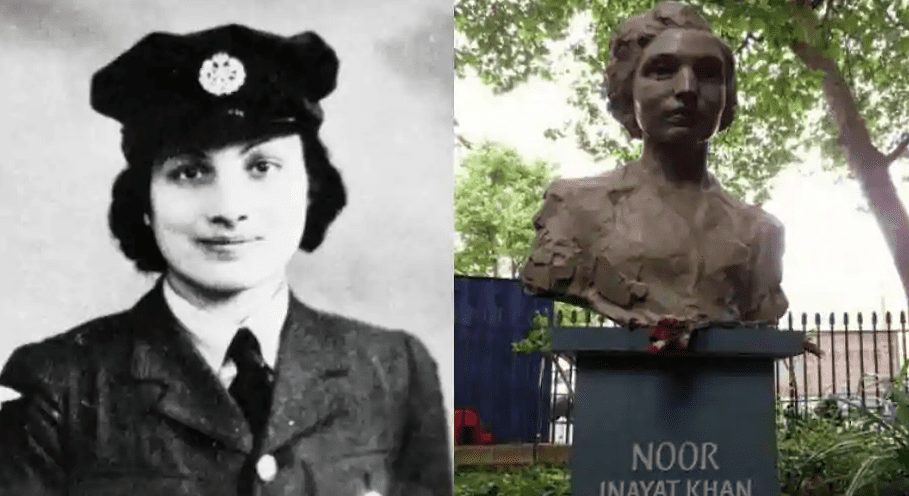Noor Inayat Khan: An emissary in World War 2


No wonder how skilled of a spy women would make! Be it keeping an eye on the competitor or looking after the places her man visits, women would leave no chance to represent themselves as a perfect detective. Just kidding! We don’t really spy on our partners but we do keep our eyes open for any kind of danger or obstacle. If we’re this talented, why not use it for a good cause? That’s what Noor Inayat Khan did! She worked as a spy for her nation.
Noor-un-Nissa Inayat Khan, also known as Nora Inayat Khan and Nora Baker, was a British Spy who served in the Special Operations Executive (SOE) in World War 2. She was born on 1st January 1914 in Moscow to Hazrat Inayat Khan and Pirani Ameena Begum (born as Ora Ray Baker). She was the eldest of four children and a descendant of the 18th Century Mysore Ruler Tipu Sultan.
After her father’s death, Noor took on the responsibility of her grief-stricken mother and her younger siblings. As a young girl, Noor was described as quiet, shy, sensitive and dreamy. She studied psychology at Sorbonne and learned to play harp and piano in Paris. She began her career writing poetry and children’s stories thus becoming a regular contributor to children’s magazine and French Radio.
The family had to immigrate to Bordeaux and then to England when France was invaded by German troops in June 1940. Although Noor was deeply influenced by pacifist ideal, she and her brother Vidayat decided to help defeat Nazi Tyranny. They believed that if they get high military distinction in the WW2, it’ll help in bridging the gap between English people and Indians as they were themselves Indians from their father’s side.
In November 1940, Noor joined the Women’s Auxiliary Air Force (WAAF) and became the First Female Wireless Operator. Later she was recruited to join France Section of the SOE. She was posted to the Air Ministry in early February 1943, then to First Aid Nursing Yeomanry (FANY) and many other places for special training.
Noor’s supervisors held mixed opinions on her suitability for secret warfare. Khan’s “childlike” qualities particularly her gentleness and “lack of ruse” had greatly worried her instructors. One of her senior wrote that Noor wasn’t that much into the two-faced spy work while another instructor said “She was very feminine, eager to please, ready to adapt herself to the mood of the company, capable of strong attachments, kind-hearted, emotional and imaginative. She was more likely to give away information tentatively, without caring, was physically unsuitable, as stated by an observer. She was unable to easily disappear in a crowd. Despite hearing all this, her dedication didn’t falter and she always longed to do something active which would require more sacrifice.
She was captured in Paris after getting double-crossed and betrayed by an SOE officer Henri Dericourt. She did not talk about her mission or activities during investigation but the officials found her notebooks which revealed a lot of personal and secretive information. She was abruptly transferred to Dachau Concentration Camp with fellow agents and at dawn on 13 September 1944, she was executed.
Noor Inayat Khan was posthumously awarded the George Cross, Britain’s highest award for gallantry in the face of the enemy. Noor is commemorated on a stamp issued by the Royal Mail on 25 March 2014 in a set of stamps about “Remarkable Lives”. In 2018, a campaign was launched to have Noor represented on the next version of the £50 note.
Featured image: WION news

Priyanka Sharma is just a simple high school pass out on the peak of teenage who loves to read and write down her random thoughts confining them into pages.
